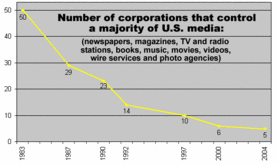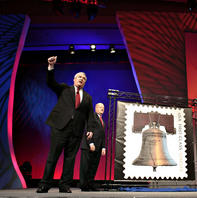 Sunday was when Internet radio was supposed to turn into
dead air,
after even an emergency court hearing had failed.
However, during a Congressional hearing Friday,
Sunday was when Internet radio was supposed to turn into
dead air,
after even an emergency court hearing had failed.
However, during a Congressional hearing Friday,
…Jon Simson, director of SoundExchange – the label-affiliated organization responsible for setting royalty rates – told Congress that the group would not enforce the new royalty rates and would continue to work on negotiating new rates with the Digital Media Association (DiMA), who are acting on behalf of webcasters. “This is definitely a step in the right direction,” Pandora founder Tim Westergren, told us this morning. “At this point, provided there’s good-faith negotiations, they’re not going to go after people.”Is this any way to run a regulatorium? All the regulatory bodies stonewalling, the courts not listening, and only one man deciding not to proceed? Continue reading— Public Outcry Staves Off Destruction of Internet Radio, Evan Serpick, Rock & Roll Daily, Rolling Stone, 7/13/07, 12:54 pm EST







 As we’ve seen, RIAA has been pushing for
As we’ve seen, RIAA has been pushing for